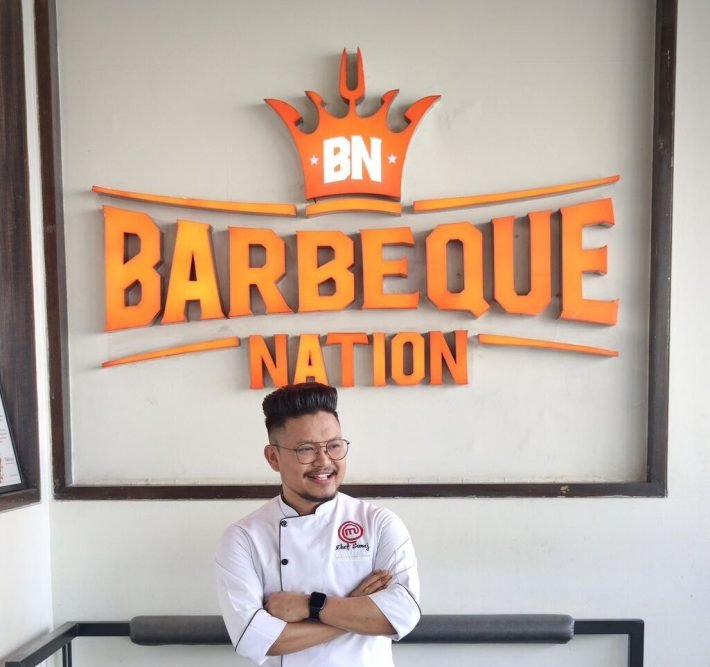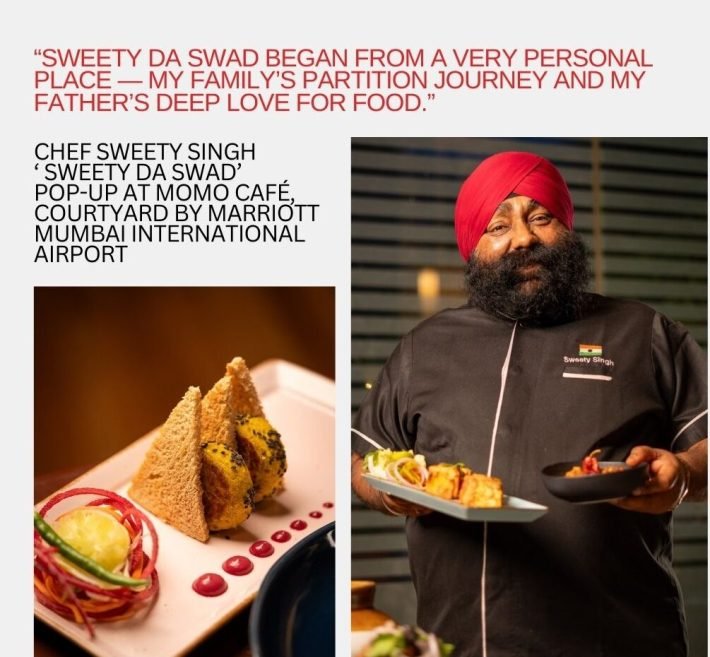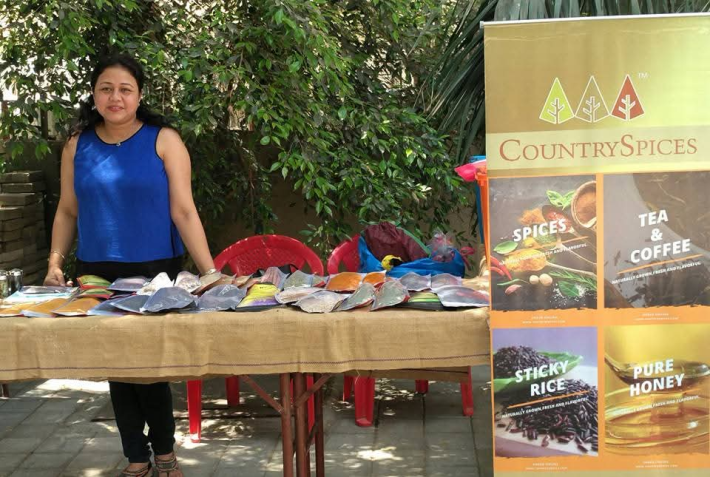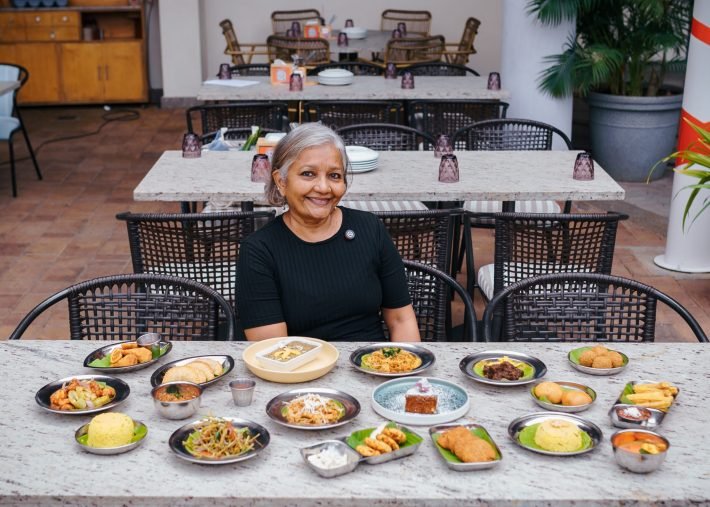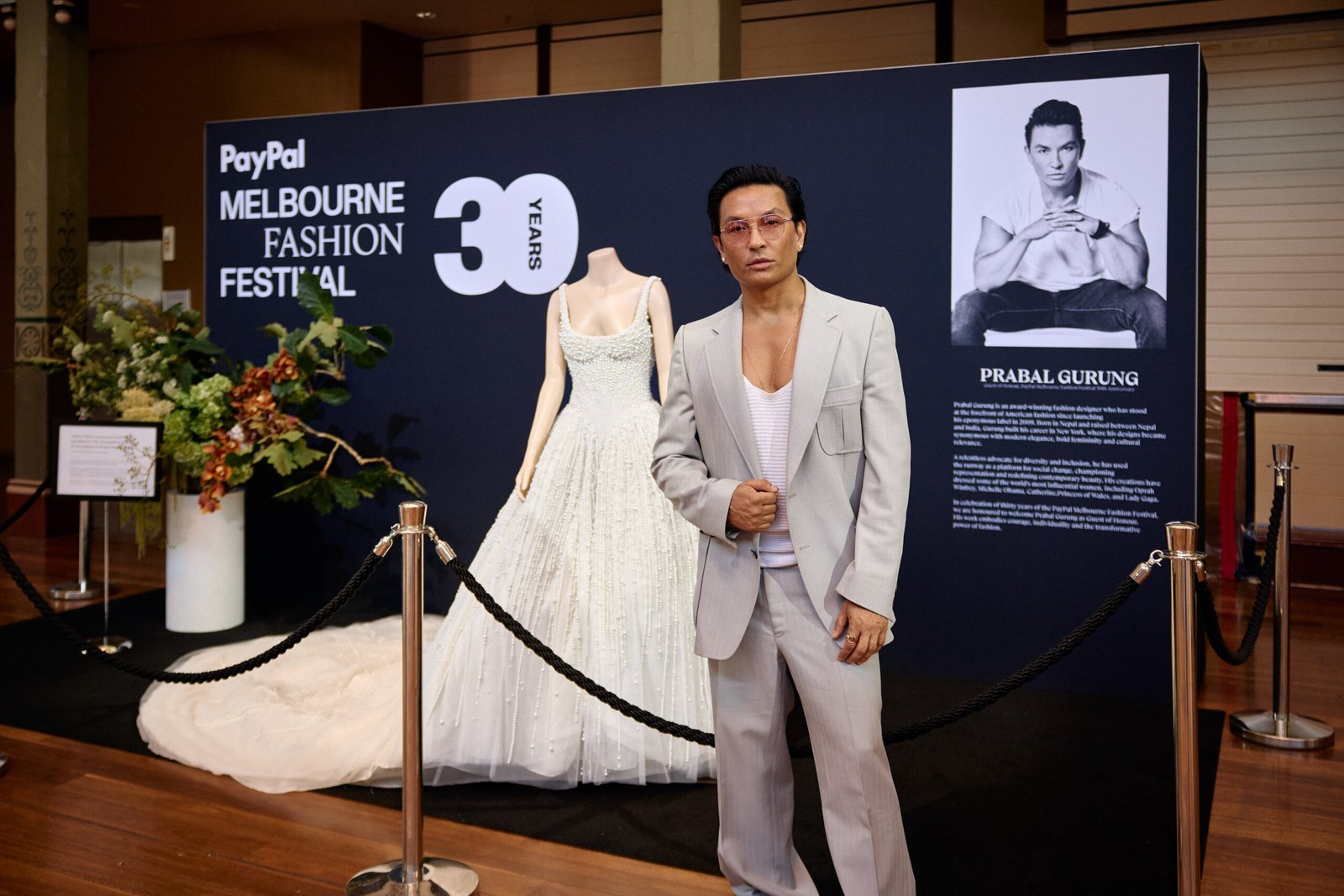Having known Ram Kamal Mukherjee for years – both professionally and as a friend – I can say firsthand, he’s not just a filmmaker, journalist, and author; he’s a master of multi-tasking with an infectious passion for cinema that’s simply impossible to resist.
We first crossed paths in Magna Publishing owned by the legendary magazine maestro Nari Hira who pioneered magazines including Stardust, SAVVY, Society and others. At that point, Ram was wielding the pen as the Editor of Stardust, commanding stories with the precision of a director. But even then, it was clear that his destiny was not just to write about films but to make them. And wow, did he!
From “Cakewalk”, where he artfully unwrapped layers of life in one elegant take, to “Season’s Greetings”, where he wove heart and depth into every frame, “Ek Duaa” which won him the National Award — Ram’s films weren’t just stories, they’re powerful, emotional experiences. Every scene was poetic, flowing with beauty and meaning, capturing life’s subtleties with an artist’s touch.
Currently, Ram Kamal Mukherji’s much-anticipated dream project, “Binodini – Ekti Natir Upakhyan” is set to take center stage, with the trailer dropping tomorrow.
Beyond Boundaries

Ram has always championed strong, independent women on screen, smashing stereotypes in his own refreshingly modern yet deeply emotional way. And let’s not forget his stunning biography of Hema Malini, Hema Malini: Beyond the Dream Girl—only Ram could peel back the layers of an icon with such grace and insight.
The Man
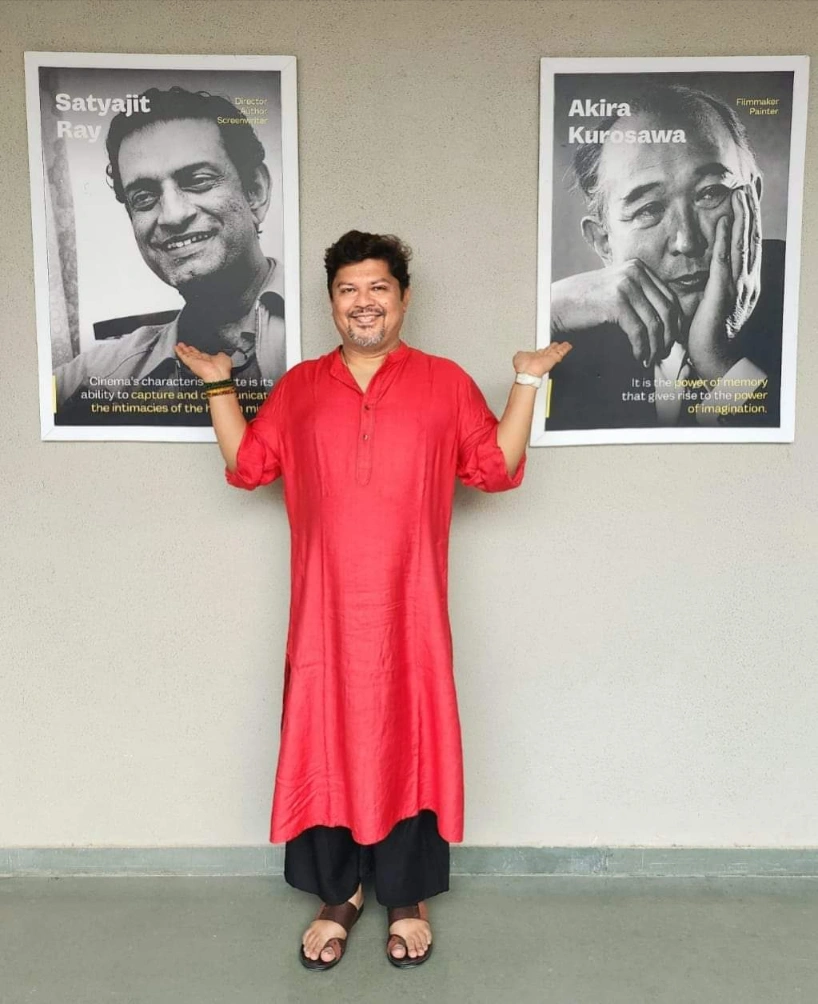
Knowing Ram all these years, I can tell you he’s as engaging in person as he is through his work. He brings an unstoppable energy to every project, infusing his sharp wit and intelligence into everything he touches. And while he showcases his craft through film, his sartorial sense showcases something else—his love for Indian fashion, crafts and artisans. Ram has this innate ability to sport outfits that are not just stylish, but a tribute to our country’s craftsmen, seamlessly blending his love for cinema and culture.
Honestly, interviewing Ram Kamal Mukherjee wasn’t just a typical Q&A – it turned out to be a creative, exhilarating animated conversation that left us both inspired, entertained, and eager to dive deeper into the world of storytelling.
Read on… as I, Sumita Chakraborty Editor-in-Chief of TheGlitz, talk to Ram Kamal Mukherjee about his journey, life and films.
From journalist to author to director, your journey has been anything but linear. What was the most defining moment that pushed you to explore filmmaking?
To be honest, filmmaking wasn’t a natural progression for me. After my stint at Stardust and Times of India, I ventured into production… that experience opened up the possibility of exploring the audio-visual medium, and it really inspired me to look at filmmaking differently.
And did you ever feel like turning back?
Absolutely! Filmmaking wasn’t organic for me at first. As a journalist, you’re always telling stories, whether through interviews, features, or trend pieces. My job involved weaving stories out of people’s lives, especially when I wrote biographies. It taught me how to arrange anecdotes into a cohesive narrative, which, in a way, is what a filmmaker does too—creating a story that people can visualize. When I began writing biographies, I realized I was already deeply invested in storytelling.
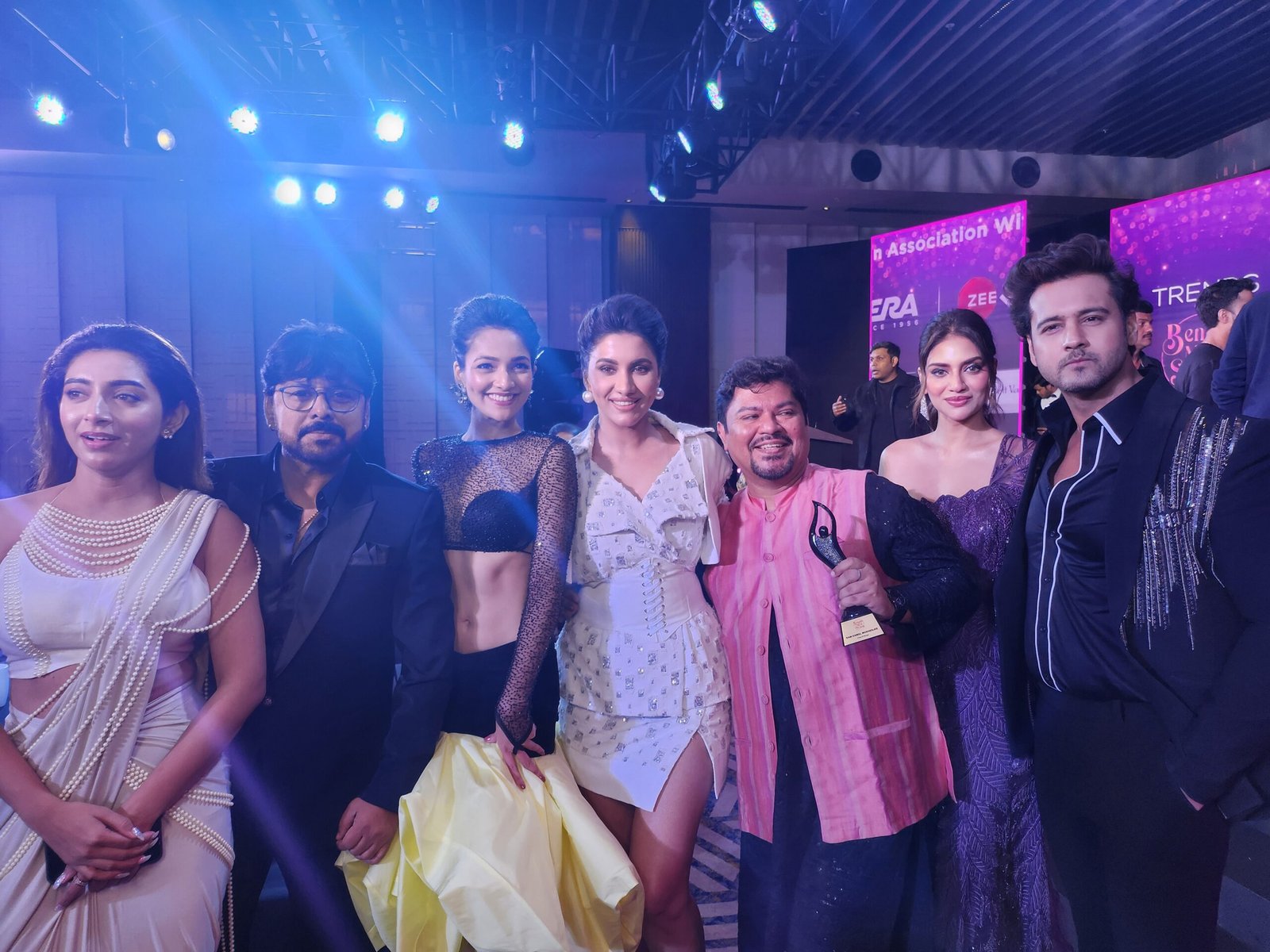
And when I produced Cakewalk, I initially had another director in mind. But when Esha Deol saw how involved I was – from scripting to costumes—she asked, ‘Why don’t you direct?’ I hesitated at first, saying I didn’t know anything about direction. But she pointed out that what I was doing – being hands-on in every department, having a clear vision – was exactly what a director does. I just needed a solid technical team behind me, like a good cameraman and editor, to bring it all together. At that point, I realized it wasn’t so much about “knowing” how to direct, but about taking the risk. Sure, there’s always a chance of failure, but equally, a chance of success. I had to try before deciding it wasn’t for me.
Honestly, I always thought I’d fall, but it was Esha who gave me that push and said, “Even if you fall, that’s your destiny. But what if you fly?” She made me realize I had wings all along.
Was there ever a moment when you thought, ‘Oh God, this is too much; I’m putting in so much?’ Especially when there’s no financial security…
Oh, absolutely. There were definitely moments where I thought, “Is this really worth it?” Balancing a family and managing multiple establishments in both Bombay and Kolkata isn’t easy. And that sense of security—or the lack of it—definitely weighs on you. A lot of my colleagues praise me for being brave, but it’s a challenge. Maintaining homes in two cities, especially with the unpredictable nature of filmmaking, can feel overwhelming.
COVID was the real turning point. Those two years changed everything, not just for me, but for the entire industry. It completely derailed the happiness and stability of every profession. You know this as well, being in media—COVID essentially killed the print industry. Sales died, the ad departments collapsed, and a lot of careers were deeply affected. The same happened with films—people stopped going to theaters and got used to OTT platforms. Honestly, the footfall for theatrical releases never fully recovered because people spent two years watching everything at home. So, while people talk about this as “a change,” I’m not sure if it’s a good or bad one.
I think it was a forced change, not a natural one. People didn’t have the option to choose between theaters and OTT—they were stuck at home, and that’s why OTT boomed.
But what people forget is that face-to-face meetings and interactions, especially in creative fields, build relationships. Zoom just doesn’t replace the energy of in-person conversations. When people talk about Indian magazines, we’ll all be part of that journey, won’t we? Thank you, Mr. Hira, and God bless his soul.
Absolutely, Mr. Hira was truly remarkable. We miss him deeply.
Yes, he was a godfather figure for many of us. His way of working was unique, but he never let his people down. He always stood by us. I would also give a lot of credit to him because he was my mentor. That’s one of the most important things I learned from him—how to give support and create a space where people can thrive. He gave us a free hand to express ourselves. The freedom of the press was always respected under his leadership, which is something I think we all miss. He truly created the best institution. Today, we are all doing well in our careers today because of the confidence and belief he instilled in us. It’s thanks to him that many of us have been able to flourish in our own vocations. Honestly, I wouldn’t be where I am today without mentors like Mr. Hira and MJ Akbar. Working under people like them shaped me into who I am. People like Mr. Hira, MJ Akbar, and Pritish Nandy were not just exceptional professionals, but they also had a profound impact on my career. I’m grateful to have worked with such stalwarts. They were truly the best mentors one could ask for. Working with these giants helped shape my perspective not only in journalism but in life itself.
With your background in journalism and writing, do you think it has shaped your voice as a director?
It has, immensely. My articulation, my sense of storytelling—all of it comes from my journalism roots. I still remember Esha telling me, “You don’t need an editor because you’ve already been one. You know where to cut and what to keep.” That skill has translated directly into filmmaking. Editing, whether it’s with words or visuals, is all about clarity. I’ve carried that over from journalism into my films. I’m very clear about what I want to show in my frames. Having said that, of course, I’m grateful to my professional editors, but I also have a very clear vision of what I want, and that helps guide the editing process. People can often recognize my films just by watching them. They say, “That’s a Ram Kamal movie,” because there’s a signature touch to the storytelling. It’s gratifying when people say that—even without seeing the credits—they can tell it’s one of my films because of that unique feel.
I agree. There’s something intimate about your storytelling style. How do you connect so deeply with your characters and themes?
I think it comes from being emotionally invested in the personalities and stories I portray. I try to understand them at a very personal level.
How much of your personal life and experiences find their way into your films?
A lot. Many of the dialogues in my films are drawn from my own experiences, interactions, and situations in life. Of course, I adapt them for the script, but the essence—the soul of those moments—remains intact.
Do you find storytelling to be a cathartic process?
Absolutely, storytelling is cathartic. Unless you’re truly involved with the characters you’re showing on screen, the audience won’t connect. If you, as the creator, don’t connect with your own work, how can you expect others to? You have to fall in love with your product and characters. Once that happens, the audience will likely understand and appreciate it as well. That’s probably why people connected with Cakewalk. As a working woman yourself, you could empathize with the character’s struggles, right? Yes, that’s how I create my stories. I observe the women around me—like Sumita, and many others—and infuse their struggles and experiences into my films. While the stories may not be exactly their own, they are relatable. It’s all about finding inspiration from the people around me. They shape the stories I tell, and in turn, the audience finds a piece of themselves in these stories.
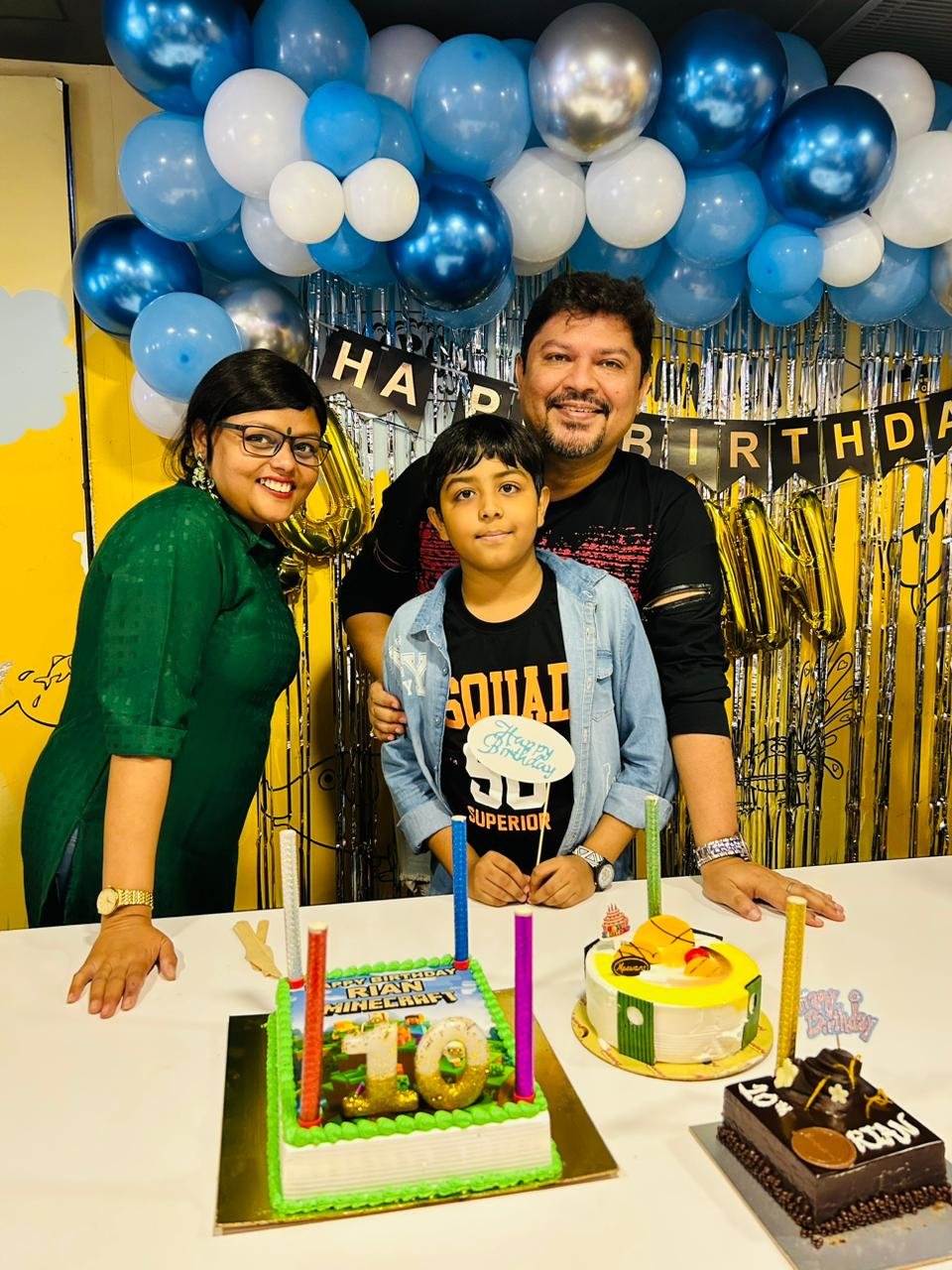
Ram, you’ve fought your way through—from journalism to a completely different field. If you could go back and offer advice to your younger self, what would you say?
I would tell my younger self to start making films earlier. Maybe if I had started before COVID, I would have been more established during those years. COVID brought challenges for everyone. Those two years were a time of change, and I wish I had been better prepared to handle them. I made my second film, Season’s Greetings, during that time, but it was difficult. With the pandemic restrictions, we couldn’t do the usual promotions. For example, Celina Jaitly got stuck in Austria, and Lillette Dubey also faced challenges. Despite these hurdles, we pushed through with digital promotions. Even though we faced limitations, Season’s Greetings became huge. Mr. Amitabh Bachchan became the brand ambassador for the film, which was a big moment for us. The film addressed the LGBTQIA+ community, a topic rarely touched on, especially in short films.
Will your films make their way onto OTT platforms?
Yes, I’m fortunate that my films have found their audience on various platforms. But as you said, if I could go back, I would have liked to start a bit earlier, even two years before the pandemic. But I have no regrets. Sometimes, when people say I’m brave for transitioning to film, I also experience moments of doubt and lows. There are times when I question my financial security compared to others who are doing so well. That’s when people close to me like my wife Sarbani remind me that not everyone has a National Award on their wall. It’s a small yet meaningful validation that tells me I’ve done something special in just two years.
You’ve been open about the struggles of acceptance, but now you’re celebrated at the National Awards. What does this recognition mean to you personally?
It’s overwhelming, Sumita. It’s a sea of emotions. To go from facing those struggles to receiving a National Award for a short film in just two years is incredible. It feels surreal.
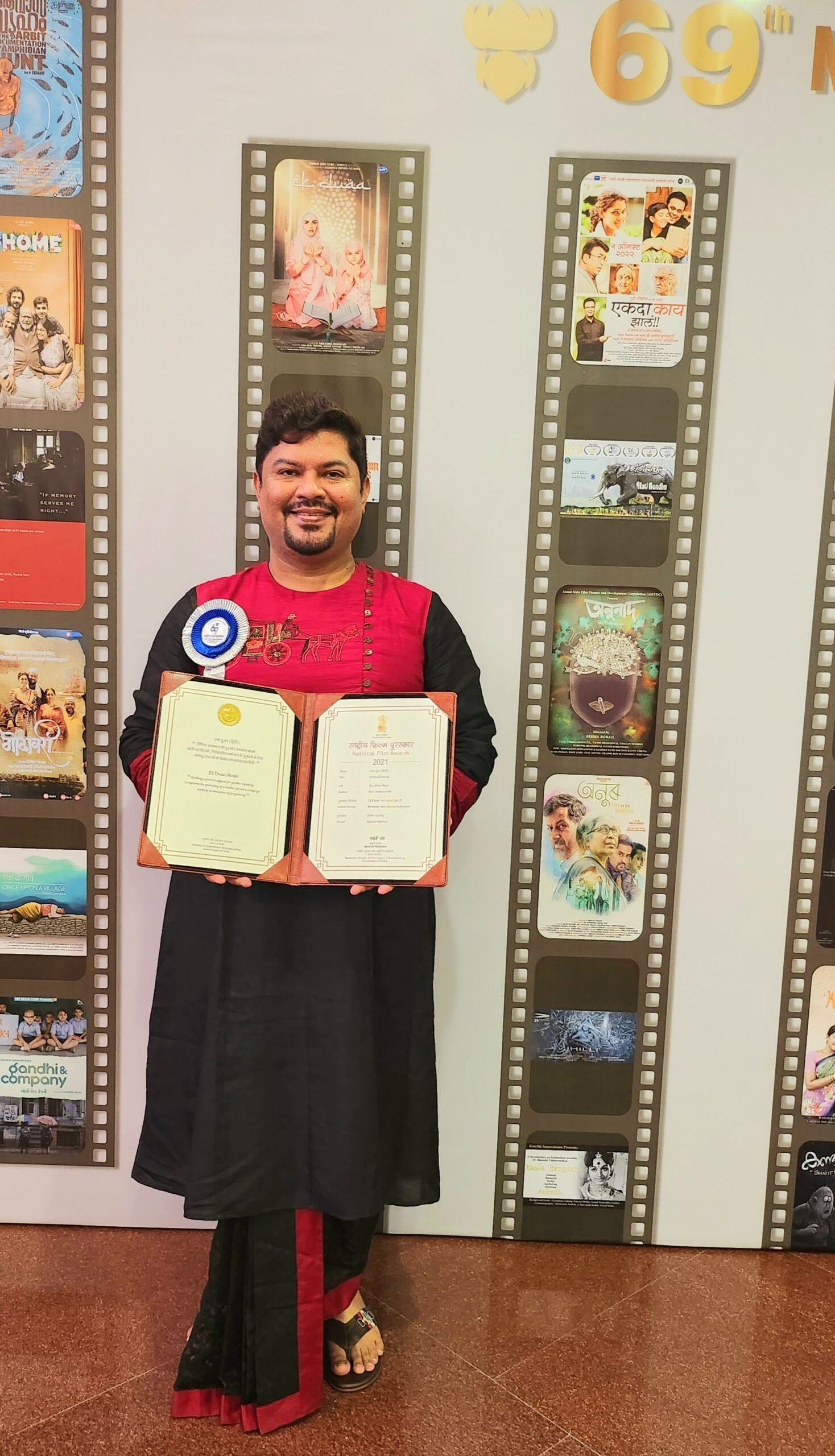
What was it like to be recognized at the National Awards in the presence of legends like Rajamouli and Karan Johar?
It was surreal. When my name was called and I stood there with the Honorable President Draupadi Murmu, surrounded by the likes of Rajamouli and Karan Johar, it felt unreal. These are the people who have redefined Indian cinema. To be among them, rubbing shoulders with such visionaries, was an honor. Last year, I was there with NTR Junior, Rajamouli, Karan Johar, Alia Bhatt for Gangubai. These are the pioneers of the new age of cinema. Even though I was standing in the same line with them to receive my award, they still saw me as a journalist. But now, I was with them as a filmmaker. It was humbling to be treated as an equal in that moment. So there we were all in the same queue, waiting for our awards—there was no distinction. Unlike commercial awards where there are VIPs and first-row treatments, the National Awards treat everyone with the same respect, regardless of who they are. It’s about the content. At the end of the day, it’s your contribution as a content creator that matters. Whether it’s Rajamouli, Karan, or myself, we’re all content creators, and we stand on the same platform. That’s the beauty of the National Awards—it’s about merit and contribution, not about stardom. Indeed, it was a proud moment for me, standing alongside such giants and knowing that I had earned my place there.
Let’s talk about fashion. Do you think about creating an impact with your style?
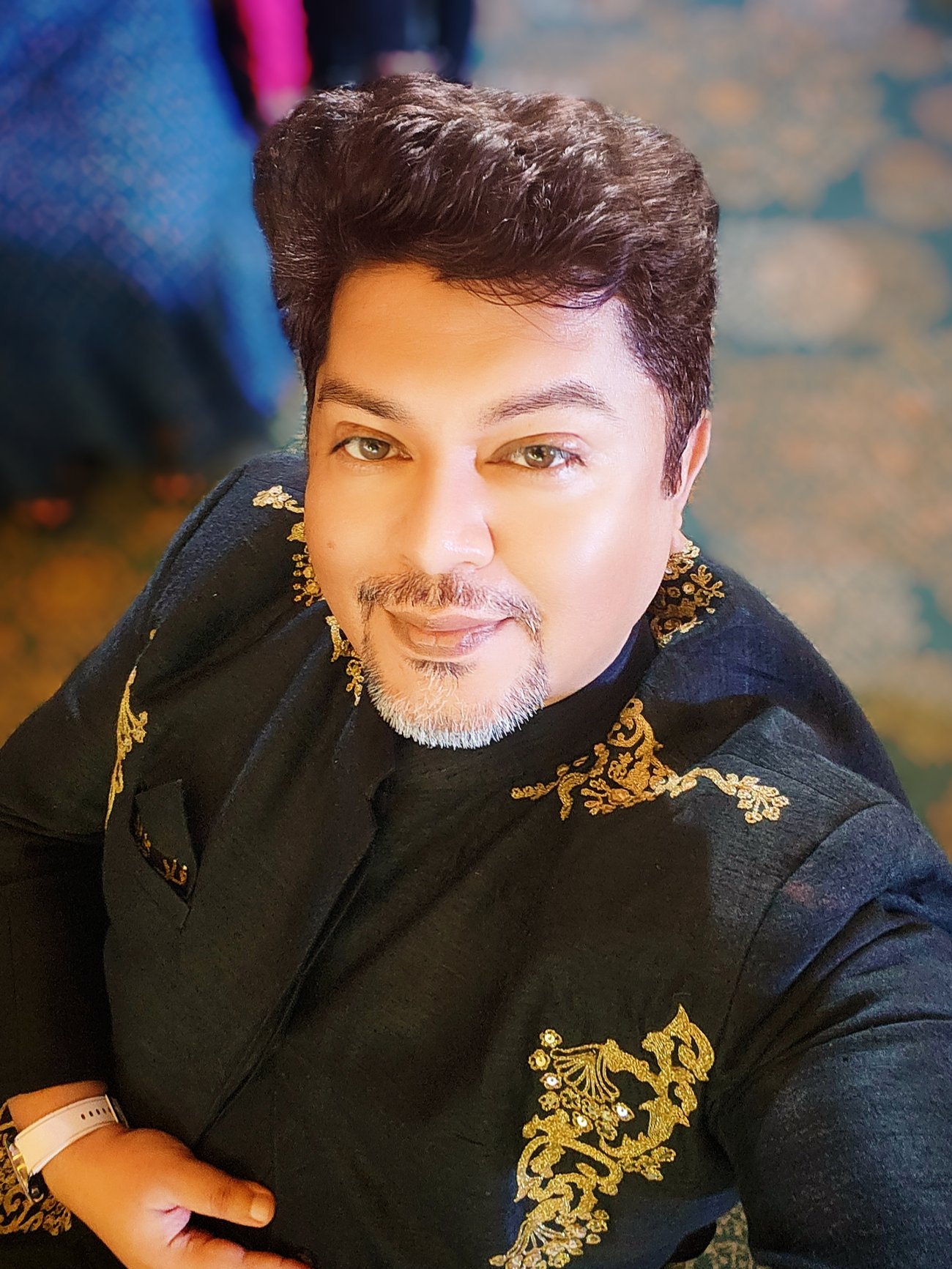
I like to be comfortable in whatever I’m wearing, but I also want my style to reflect who I am. It’s not about making a sartorial statement just for the sake of it, but about being authentic to myself. For instance, when my coffee table book was launched, everyone was giving me suggestions about wearing jeans, a T-shirt, or a blazer to look more like a “Bombayite.” But I decided to wear Sharbari Datta’s kantha stitch kurta. That choice made me stand out. Everyone noticed, and the fashion pages picked up on it, saying I brought a unique style to an otherwise Bollywood-dominated event. At the National Awards, I wore an outfit that represented Bengal—a maroon and black ensemble with the Victoria Memorial emblem woven into it. Even at events like the IWM in Bombay, when I received the Best Director award for Ek Dua, I wore a bandh gala but added a personal touch—a pocket square with Ek Dua written in Urdu. So yes, fashion is personal for me. It’s not just about looking good, but about presenting yourself in a way that represents your roots and your art. I want to feel connected to what I wear while standing out at the same time. I don’t overdo fashion or see it as a statement; I’d rather be myself, and that becomes my fashion.
Now that you’re recognized on a national stage, do you feel a new weight of expectation on you?
Now that I’m recognized on a national stage, I do feel a weight of expectation. I’ve started my journey, and now that I’ve achieved this level of recognition, there’s a lot of expectation from me. With projects like Binodini and others, I feel the pressure of what people will expect. However, I don’t let that pressure in. When you feel pressured, you might try to over-deliver, which can lead to failure. So, I prefer to go with the flow, allowing my audience to enjoy what they’ve been watching without feeling the need to satisfy certain expectations. That can become overwhelming.

I’ve seen some of your Facebook posts where you’ve expressed feeling betrayed—whether it’s being cheated of money, credit, or someone not keeping their word. How do you deal with those moments of betrayal, and what has this taught you about people and the industry?
The creative world comes with its own set of highs and lows, and I do get upset when someone writes nasty things about my work. But having been in journalism, I guess our wounds heal faster than those of others. We’ve met many critics later who, after seeing our success, have softened their stance and even complimented us. It’s all part of the journey.
I’ve shared on social media how I’ve felt betrayed, whether it’s been due to financial issues or people not keeping their word. Betrayal has existed since the days of Julius Caesar. There’s always a “Brutus” in your life, but that doesn’t set the norm. There are many who have supported and stood by me, and that’s how I’ve managed to survive. When someone close betrays my trust, I tend to shut that door completely. I’m not sure if that’s right or wrong, but it’s my way of coping.
Can you share which controversy hit you the hardest, the one that made you question everything, yet somehow also gave you the strength to get back up and keep going?
Every filmmaker faces controversy at some point. While I haven’t dealt with many severe controversies, I did experience backlash from some right-wing critics who questioned why I portrayed a Muslim family in one of my films. They assumed it was due to my connections to certain political figures. But the story was written by Avinash Mukherjee, a celebrated actor. I didn’t dictate its direction; I simply developed it into a narrative.
I believe that controversies often stem from misunderstandings. My intention has always been to tell stories that are universal and relatable, transcending religious lines. My film Ek Duaa ultimately focuses on woman empowerment and the message of Beti Bachao, Beti Padhao. Winning a national award for it helped silence my detractors.
What’s the one story that’s still burning inside of you, waiting to be told?
As I look to the future, I’m open to experimenting with different forms of storytelling, but action films aren’t my calling. I prefer narratives that delve into emotional depth and cultural experiences.




